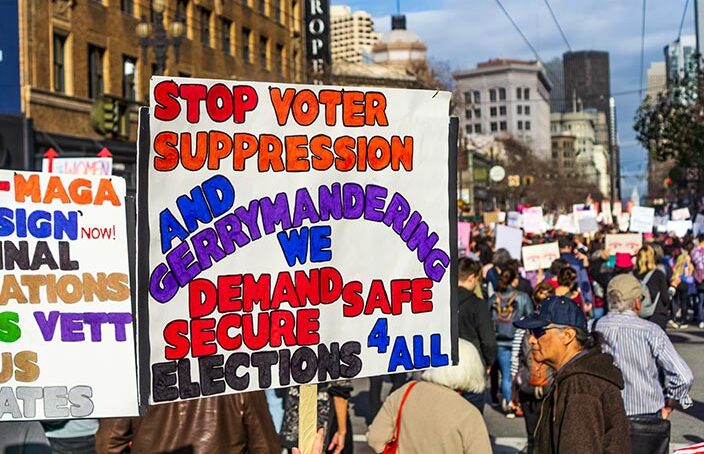Democracy, Voter Suppression and “Our America: Who Are We?”
Featuring an interview with Sondra Myers
When you think about American democracy – what exactly do you think of?
Perhaps you think of the United States Constitution or Bill of Rights. Maybe you think about your elected representatives and your right to vote. Or rather, you think about your voice, among a sea of voices, where you are heard or have yet to be.
Sondra Myers, Senior Fellow for International, Civic and Cultural Projects and Director of The Schemel Forum at the University of Scranton edited a collection of work exploring America and its complex, contradictory, ever-progressing history and present. Titled “Our America: Who Are We? A Digest of Impressions, Reflections and Opinions,” Myers features excerpts from the works of presidents, scholars, writers and activists, including Alexis de Tocqueville, Frederick Douglass and student survivors of the Parkland, Florida school shooting.
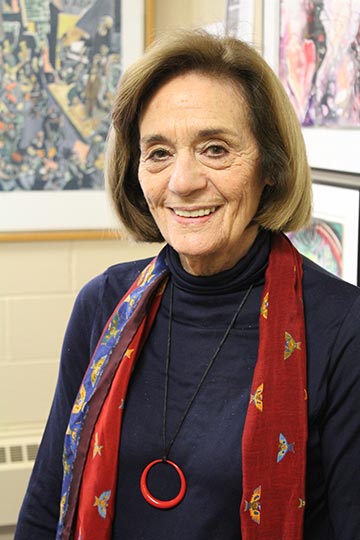
Sondra Myers, author and lecturer of arts, humanities and civil society.
Her curation is a cumulative study of America, its democracy and its diverse, pluralistic array of peoples and beliefs. It is a study that needs and deserves to be continued.
What is Democracy?
By definition, democracy is a system of government that operates by the participation of its people, such as through elections. As a result, its power lies in majority rule. While democracies across the world vary in their structure of leadership and divisions, they are unified by characteristics of equality, individual freedom and liberty.
American democracy is defined by its Constitution, elected representatives, executive, legislative and judicial branches, as well as the powers retained by each individual state. History has shown that while equality and universal freedoms were and are a goal, they have yet to be fully accomplished or attained.
Myers emphasizes that the most essential aspect of our democracy is its people. “The one thing that a democracy has to have is not a Constitution,” Myers says. “It has to have informed and engaged citizens. They are the heart and soul and body of democracy.”
In “Our America: Who Are We?,” Myers highlights the perspective of French diplomat and political scientist, Alexis de Tocqueville. His work, “Democracy in America” has been examined by academics for its perceptive understanding of nineteenth century America. “As soon as several of the inhabitants of the United States have conceived a sentiment or an idea that they want to produce in the world,” Tocqueville explains, “they seek each other out; and when they have found each other, they unite.”
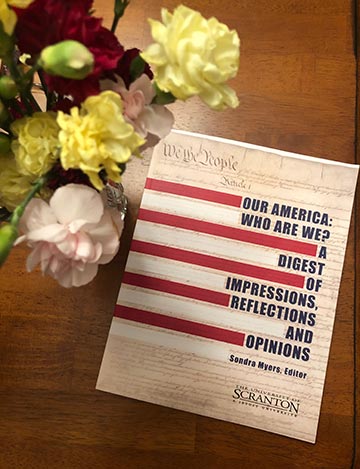
“Our America: Who Are We? A Digest of Impressions, Reflections and Opinions” edited by Sondra Myers.
“From then on,” Tocqueville continues, “they are no longer isolated men, but a power one sees from afar, whose actions serve as an example; a power that speaks, and to which one listens.”
The concept of moral and intellection associations in America, as Tocqueville referred to them, were unlike any he had witnessed before. He declared that the art and science of such associations, for people to produce or defend ideals, is just as important to a civilization as equality.
In “Promised Land, Thirteen Books That Changed America,” writer and professor Jay Parini discusses our founders’ careful consideration of the elements that would make a successful nation. “By a ‘successful nation’ – a perilous phrase –” Parini says, “I mean one that does not obtrude on the liberty of its citizens and allows for diversity of opinions without crushing those who disagree with the majority in power.”
Such is the beauty and complexity of pluralism in our nation; with the coexistence of diverse opinions, values and loyalties. In “The Idea of Pluralism in the United States”, Richard Norman, Ph.D. notes that pluralism has become “intertwined with questions of democracy, religion, race and ethnicity, and assimilation.”
“The reconciliation of contending identities and loyalties is an ongoing challenge,” Norman continues. “In a democracy, the just balance between freedom and equality is part of a never-ending discussion.”
Voter Suppression in 2021
This never-ending discussion was stressed following the passage of Georgia’s “Election Integrity Act of 2021” at the end of March.
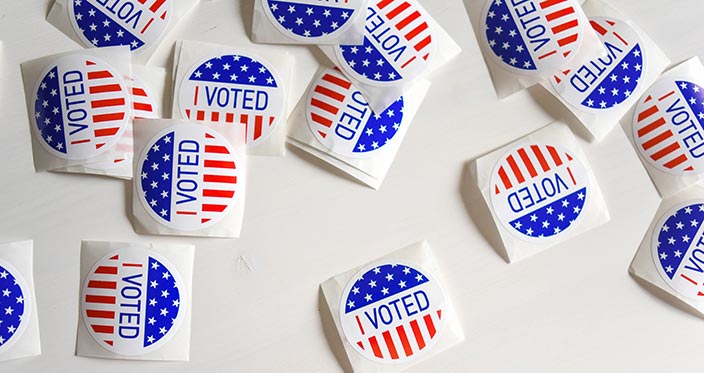
“I Voted” stickers.
Element5 Digital / Unsplash.com.
Georgia’s election law, which claims to fight widespread voter fraud, was denounced by Democrats including President Joe Biden, civil rights groups and big corporations like Delta, Coca-Cola and Major League Baseball for its restrictive voting policies, particularly suppressing Black and Latino voters.
The law, signed by Republican Governor Brian Kemp, features a number of changes including shorter absentee voting periods to send and request ballots, different identification requirements for absentee voters, a limit on the number and location of ballot drop boxes, as well as times to access them. Additionally, the law makes it a misdemeanor to give food and drink to voters waiting in line in the vicinity of polls.
“This is Jim Crow in the 21st Century,” President Biden said. “It must end. We have a moral and Constitutional obligation to act.”
Myers emphasized the need to defend our democracy in a Scranton Times Tribune letter to the editor. “As citizens, whether Republican, Democrat or independent,” she wrote, “it is for us to stop this movement in its tracks. We must speak out. We must protest!”
Voter suppression has had a long history in the United States; from Jim Crow laws including literacy tests and poll taxes, to the “Grandfather Clause,” the consolidation of polling locations and the unconstitutional ruling of a key section of The Voting Rights Act of 1965 by the United States Supreme Court in 2013.
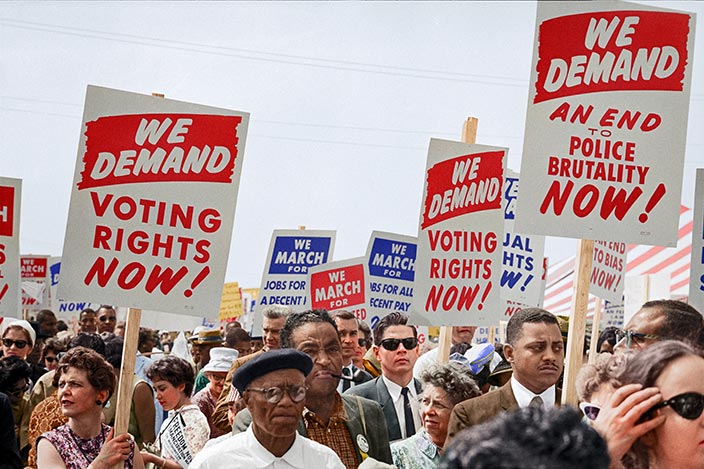
Marchers holding signs at the March on Washington in 1963.
Unseen Histories / Unsplash.com.
Additional states are also considering more restrictive election laws. Florida passed a voter suppression bill in April. Texas almost passed a bill over Memorial Day Weekend, but it was temporarily blocked with a walkout by Democrats.
In response to the rise of voter suppression bills, numerous corporations, executives, advocates and politicians have spoken out against the threat to voting rights. Following Major League Baseball’s removal of its All-Star Game from Atlanta, Minnesota Representative Ilhan Omar stated: “So our hope is that…this boycott would result in changes in the law, because we understand that when you restrict people’s ability to vote, you create a democracy that isn’t fully functioning for all of us. And if we are to continue to be a beacon of hope for all democracies around the world, we must stand our ground.”
If our democracy is truly a “government of the people, by the people, for the people,” as Abraham Lincoln put it in “The Gettysburg Address,” then the right of citizens to vote cannot be suppressed or limited. Myers encourages the fight for the right to vote, saying, “It has to be done. And we’re the ones [to do it].”
Investment in Civic Education
A February 2020 report from the nonpartisan fact tank, Pew Research Center found that 59% percent of Americans were dissatisfied with the way democracy is working in the country. The survey also reported that 66% percent of people think that children of the American democratic system will be worse off when they grow up.
The fascinating part about our nation’s framework is that one way to triumph these dissatisfactions in our democracy is with our democracy. This process stems back to American children, and the necessity of civic education to increase understanding of American government and history as it pertains to ideology, rights and the responsibilities of every citizen.
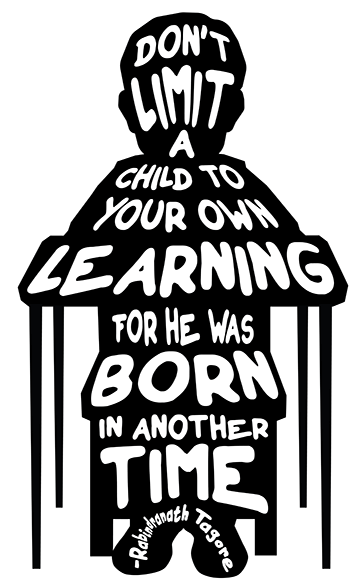
Quote by Rabindranath Tagore, a Bengali poet, writer and social reformer.
Hyperactive Studios / Shutterstock.com.
Danielle Allen, director of the Edmond J. Safra Center For Ethics at Harvard, where she also works as a graduate professor and leads The Democratic Knowledge Project, believes that America lacks investment in civic education. “You can see that now in the comparison that we currently spend $54 per year per kid of federal dollars on STEM education” she says, “and only 5 cents per year per kid on civics.”
“Civic education seems to have been lost here,” Myers explains. “…After all, you’re not born with these ideas. It needs to be taught.” For this reason, Myers says she is excited about the push amongst academics like Allen to revive the instruction of civics.
The purpose of The Democratic Knowledge Project, Allen explains, is to develop a roadmap for future integration of history and civics in K-12 education. “Instead of seeing the disagreement about how to narrate our nation’s history as a kind of end of the conversation,” she states, “we would see it as the beginning of a conversation.”
One way to do this, Allen proposes, is to challenge educators to “find a way to tell an integrated version of US history that is simultaneously honest about the crimes and wrongs of the past.” Additionally, she suggests starting discussion about challenging topics from a place of inquiry to better gauge students’ analytical and emotional understandings of such topics.
Allen emphasizes that civic education is not the only requirement to progress in our democracy. Just because citizens are dissatisfied or disengaged does not mean that they are lacking in education or perspective. Perhaps what is lacking among dissatisfied citizens is their sense of empowerment, and their voices being heard.
“[Our institutions] don’t generally empower ordinary people,” Allen says, “and they very often don’t deliver sort of equal representation. So, in that regard, everybody, all citizens, civic participants have a job to do to think about redesigning our institutions so that they achieve those things.”
American Optimism & Public Good
Democracy’s presence throughout history is arguably more than just a governmental system. It is a hope, a goal and a theme that has carried people for centuries. As Myers wrote in “Our America: Who Are We?,” “The founding documents are testaments to our idealism. We are both driven and haunted by our promise.”
Frederick Douglass, an abolitionist, orator, writer and American INSIGHT Storyline Hero became a national leader in the abolitionist movement after his escape from slavery. In 1852, he discussed his hope for the future of America in his speech, “What, To the Slave, Is The Fourth of July.”
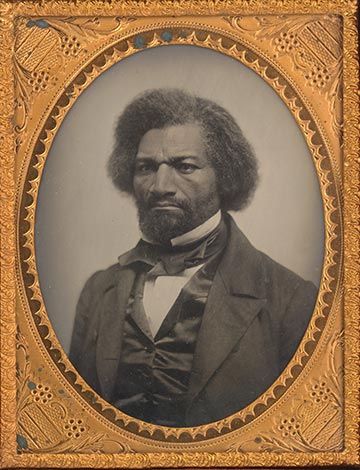
Frederick Douglass, abolitionist, orator and writer in the 1800’s.
Smithsonian National Portrait Gallery.
“I do not despair of this country,” Douglass said. “There are forces in operation which must inevitably work toward the downfall of slavery. ‘The arm of the Lord is not shortened,’ and the doom of slavery is certain. I, therefore, leave off where I began, with hope. While drawing encouragement from ‘the Declaration of Independence,’ the great principles it contains, and the genius of American Institutions, my spirit is also cheered by the obvious tendencies of the age.”
Douglass continues, “Nations do not stand in the same relation to each other that they did ages ago…a change has now come over the affairs of mankind. Walled cities and empires have become unfashionable. The arm of commerce has borne away the gates of the strong city. Intelligence is penetrating the darkest corners of the globe. It makes its pathway over and under the sea, as well as on the earth.”
Nearly one hundred seventy years later, changes are still coming to the affairs of mankind. While communication is easier across the globe, we are oversaturated with words, opinions, digital and social information. We struggle to define what is free, equal and fair in speech and expression. We struggle to ensure that every voice and every vote is heard. Yet, as Tocqueville saw and admired, we as Americans are capable of uniting in support and defense of such rights.
In his recent Memorial Day address at Arlington National Cemetery, President Biden discussed the current state of democracy. “We were built on an idea, the idea of liberty. An opportunity for all,” he said. “We’ve never fully realized that aspiration of our founding, but every generation has opened the door a little wider and every generation has opened it wider and wider to be more inclusive.”
Biden also referred to empathy as the “fuel of democracy.” Both empathy and inclusivity tie into Robert B. Reich’s discussion of “The Common Good,” or shared commitments to rule of law and institutions of government, tolerance of our differences, equal rights and opportunities, and participation in civic life.
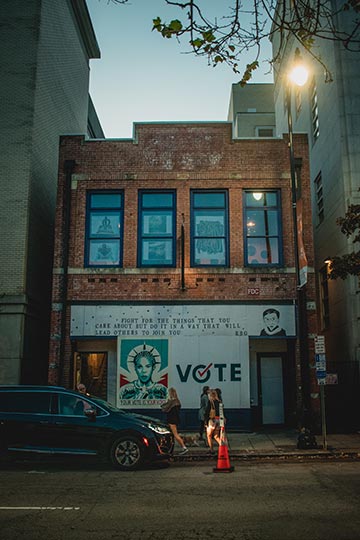
Political art in downtown Raleigh, North Carolina.
Drew Perales / Unsplash.com
As Reich writes in his book, “We have never been a perfect union. Our finest moments have been when we sought to become more perfect than we had been. We can help restore the common good by striving for it and showing others that it’s worth the effort.”
The key to maintaining our democracy, Myers believes, is to see our nation as the work in progress in which it was designed, and to become and remain engaged participants in its process.
As one of her personal mottos goes: “The most precious right we have is the right to be responsible for the public good.”
Additional Reading
For further discussion about our rights as citizens through the years, readers are invited to check out American INSIGHT’s Storyline and annual Free Speech Film Festival.
By Kristi Szczesny, American INSIGHT Content Strategist
—
Featured image courtesy of Sundry Photography / Shutterstock.com.

